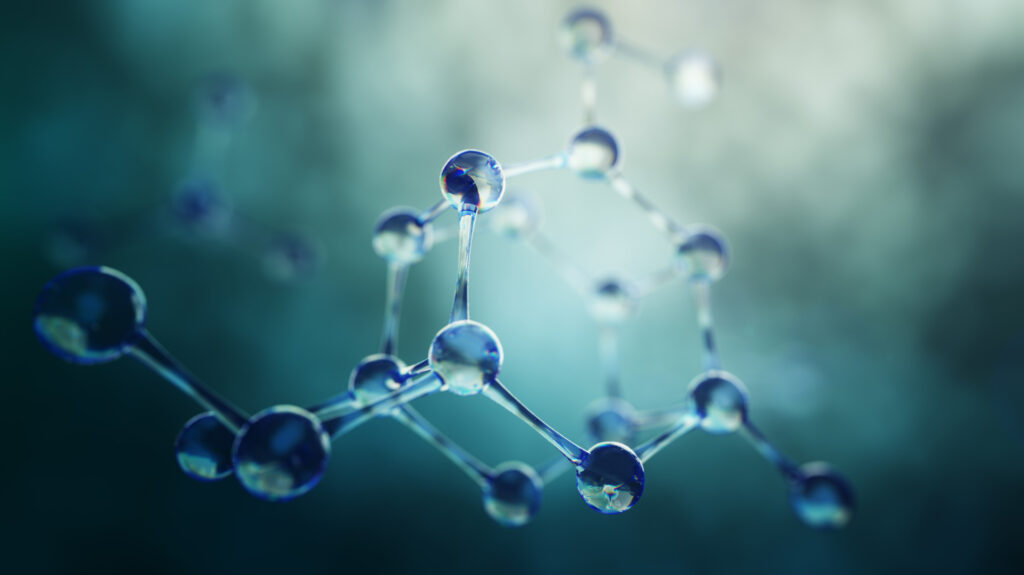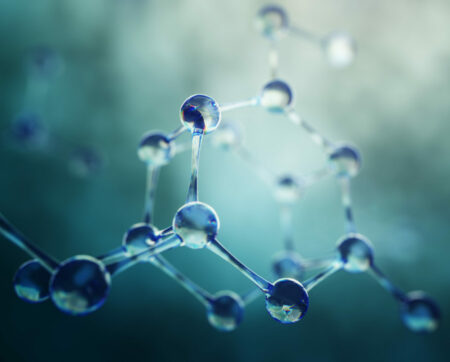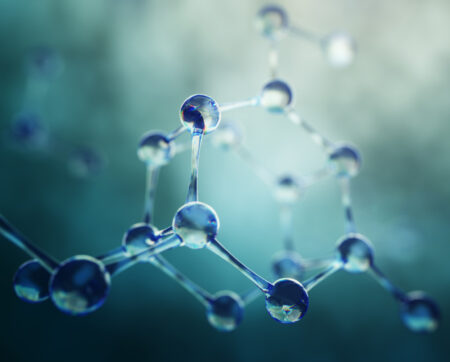1] Parution d’ouvrage « L’énigme de la vie dans le cosmos »
La question de la vie extraterrestre fascine l’humanité depuis des millénaires. Au-delà des fantasmes et de la fiction, des scientifiques mènent des recherches passionnantes sur la possibilité d’une vie ailleurs. Cet ouvrage, écrit par deux astrophysiciennes, vous invite à un grand voyage dans le temps et l’espace sur cette quête hors du commun. Après avoir exploré ce qui définit la matière vivante et les moyens dont nous disposons pour la rechercher dans le cosmos, ce livre vous emmène dans le Système solaire et au-delà à la recherche de mondes potentiellement habitables. Il évoque enfin les perspectives offertes par l’exploration spatiale humaine… avec tous les questionnements que soulève cette démarche.
Auteurs : Athéna Coustenis & Thérèse Encrenaz
= = = = = = = = = = = = =
[2] Conférence Ambassadeur CNRS Chimie Philippe Schmitt-Kopplin
Life in a Nutshell: biotic and abiotic chemistry of natural complex systems
Schmitt-Kopplin Philippe – (schmitt-kopplin@tum.de)
1Helmholtz Munich, Oberschleißheim, Germany, 2Technical University Munich TUM, Weihenstephan, Freising, Germany, 3Max Plank Institute for Extraterrestrial Physics, MPE, Garching, Germany
Abstract:
Understanding complex organic mixtures in bio- and/or geosystems at the molecular level is a major challenge in modern science. It requires continuous development and adaptation of ultrahigh-resolution analytical technologies, along with innovative solutions for detailed analysis. Our aim is to highlight the chemical diversity and complexity of mixtures subjected to both biotic and abiotic processes. Here, we present concepts and experimental results that illustrate the awareness of chemical complexity and diversity, with examples from interfaces in biomes and abiomes of chemical systems across life, after-life, and pre-life stages. These systems pose major challenges for analytical chemistry in describing their dynamic chemistry.
Short CV:
Prof. Ph. Schmitt-Kopplin performs tailored and comprehensive chemical profiling and metabolomics in the food-health continuum. He has a strong profile in analytical chemistry with a background in ecological and environmental chemistry. His interests are in integrating analytical approaches for complex molecular mixtures, combining (ultra)high resolution mass spectrometry, (µ)separation sciences, NMR-spectroscopy with chemometrics and (bio)informatics for the description of complex organic systems on a molecular level. A focus in the last decades was to implement ultrahigh resolution mass spectrometry into cross-Omics applications and for a rapid and robust tool for deep metabotyping and small molecules profiling in the fields of environment, food and health. His interdisciplinary studies are related to the interface of chemistry and biology. He is director of the research unit analytical BioGeoChemistry of the Helmholtz Munich and heads the Comprehensive Foodomics Platform at the Institute of analytical Food Chemistry of the Technische University Munich Germany. His interest in biotic and abiotic chemical processes lead him closer to the community of Molecular Evolution in Prebiotic Environments and he is involved in various sample return missions in the analytical teams with NASA and JAXA.
01/12/2025 – Paris – Institut de minéralogie, de physique des matériaux et de cosmochimie
(contact : laurent.remusat@upmc.fr)
05/12/2025 – Strasbourg – Institut pluridisciplinaire Hubert Curien
(contact : dimitri.heintz@iphc.cnrs.fr)
08/12/2025 – Nice – Institut de chimie de Nice
(contact : cornelia.meinert@unice.fr)
09/12/2025 – Marseille – Physique des interactions ioniques et moléculaires
(contact : gregoire.danger@univ-amu.fr)
11/12/2025 – Bordeaux – Institut de chimie et de biologie des membranes et des nanoobjets
(contact : caroline.tokarski@u-bordeaux.fr)
12/12/2025 – Toulouse – Laboratoire SOFMAT
(contact : alexandra.ter-halle@cnrs.fr)
= = = = = = = = = = = = =
[3] Webinaire du GT Chimie de Origines : Donia Baklouti de l’Institut d’Astrophysique Spatiale La matière organique extraterrestre dite « primitive », 5 décembre 2025, 13h :
Le prochain webinaire du GT Chimie de Origines de la SCF aura lieu le 5 décembre 2025 à partir de 13h.
Il sera donné par Donia Baklouti de l’Institut d’Astrophysique Spatiale La matière organique extraterrestre dite « primitive »
Pour pouvoir assister à ce webinaire, veuillez remplir ce formulaire
Le lien pour la visio vous sera envoyée la veille du webinaire.
= = = = = = = = = = = = =
[4] Winter School at Nantes Université – Organics in the Solar System – Jan. 5 -7, 2025
Organics in the solar system
As part of the Graduate Programme in Earth and Planetary Sciences and the Erasmus Mundus GeoPlaNet Master, the ‘Laboratoire de Planétologie et Géosciences (LPG)’ and the ‘Département des Sciences de la Terre et de l’Univers de Nantes Université’ organize the winter school « Organics in the Solar System », in January 5-7, 2026. The thematic school is aimed at second-year master’s students, but it is also open to PhD students and motivated bachelor students (by selection).
The aim of this thematic school is to provide students with an overview of the latest discoveries related to organic compounds in various solar system objects, resulting from recent explorations and analysis, and to open up perspectives for future exploration. In addition to a series of lectures given by international experts, students will work in groups on instrumental concepts for a future in situ exploration of Ceres. The students will also have the opportunity to discover a selection of ancient terrestrial rock samples and to explore some sites of interest in virtual reality.
The thematic school is open to all master’s and doctoral students interested in planetary sciences and space exploration. Registration is free, but each student is responsible for organizing their own travel and accommodation.
A specific program, with financial support, is also offered to up to 12 bachelor students (subject to selection).
More information on application procedure for Bachelor or Licence’s students. (Deadline for financial support: Nov. 30 2025)
More information about the programme and registration for master and PhD attendees. (Deadline for registration: Dec. 5, 2025).
= = = = = = = = = = = = =
[5] Module de l’Ecole doctorale MNHN « Life at the Limits »
Pour les doctorant.e.s en Ile de France qui souhaite s’inscrire :
https://adum.fr/script/formations.pl?mod=3716152&site=l
= = = = = = = = = = = = =
[6] Offre de post doc RMIAnalyst / post doc position RMIAnalyst
Bonjour,
La société MAD-Environnement en partenariat avec l’IRAP (Institut de Recherche en Astronomie et Planétologie) propose un contrat post-doctoral d’une durée d’une année sur le développement de méthodes de Computer Vision et de Deep Learning appliquées aux images RMI (Remote-Micro Imager) du robot d’exploration martienne Curiosity dans le cadre du projet RMIAnalyst. La description du contrat ainsi que les modalités de candidature se trouvent à ce lien.
——————
Hello,
The company MAD-Environnement, in partnership with IRAP (Institute for Research in Astrophysics and Planetology), is offering a one-year postdoctoral position on the application of Computer Vision and Deep Learning methods to RMI (Remote Micro-Imager) images from the Martian exploration rover Curiosity, as part of the RMIAnalyst project. The position description and application procedures can be found here.
= = = = = = = = = = = = =
[7] M2 internship open position: Isolation of Methanogenic, Electrotrophic Communities from Natural Habitats and Domestication in Electromethanogenic Reactors – PROSE (INRAE, Antony -Île-de-France) and DEEM (Université Paris-Saclay)
Context and objectives: Bioelectrochemical systems combine microorganisms with electrodes to enable chemical reactions that convert waste compounds into energy and valuable chemicals like methane. These systems capitalize on microbes that exchange electrons extracellularly, linking biological and electrical processes. As renewable energy grows, bioelectrochemical approaches offer flexible, sustainable solutions for bio-production and waste treatment. However, advancing these systems from controlled laboratory settings to real-world applications requires ensuring their performance under more demanding environmental conditions, including lower temperatures and extreme pH levels. The MeCANo project, funded by the OI MICROBES and led by the PROSE unit (INRAE, Antony, France) in collaboration with the DEEM team (UPSaclay), aims to address this challenge. More specifically, the project aims to address challenges of bioelectrochemical systems in productivity induced by low temperature, low CO2 partial pressure and high pH, by isolating methanogens from natural environments with similar characteristics. The end goal is to domesticate the isolates in electromethanogenic reactors, to boost productivity in the desired for biotechnology conditions.
Internship programme: The internship will focus on the isolation, cultivation, and utilization of psychrotrophic, alkaliphilic, hydrogenotrophic methanogens, and their domestication in electromethanogenic reactors. The intern will:
• Assist in implementation of a cultivation protocol for methanogens in semipermeable hydrogel capsules (SPC), using model species of methanogenic archaea.
• Isolate target methanogens from environmental samples and cultivate them in SPCs.
• Inoculate and operate bioelectrochemical systems using the obtained methanogens.
The work will involve physicochemical and electrochemical analyses, DNA extraction and molecular identification of isolates, reactor operation and maintenance, and data collection and processing. The intern will work closely with Maria Ciobanu (UNICELL facility, DEEM) on the cultivation part and Eleftheria Ntagia (PROSE) on the bioelectrochemical part, under the supervision of Eleftheria Ntagia, Purificación López-García (DEEM), and Miguel Iniesto (DEEM).
Internship placement: The internship will be hosted by the PROSE unit and the DEEM team. PROSE (Antony -Île-de-France) INRAE’s flagship research unit for environmental biotechnology and microbial process engineering. The DEEM team (Gif-surYvette, France) investigates the diversity, ecology, and evolution of microbial life across bacteria, archaea, and eukaryotes.
Desired profile: We are looking for a highly motivated M2 or final year student in microbiology, biotechnology, chemical/bio-process engineering or a related field. Practical experience and strong background in basic microbiology or analytical chemistry is essential, familiarity with electrochemistry is a plus. You should be comfortable working in English (French is welcome but not required). We encourage applications from students of all backgrounds and we are committed to fostering an inclusive research environment.
Please send your application (detailed CV and a cover letter) to Eleftheria Ntagia (eleftheria.ntagia@inrae.fr). Feel free to contact us for more details and to forward this message to anyone who might be interested in this position.



Aucun commentaire sur l'article Newsletter du 16 novembre 2025